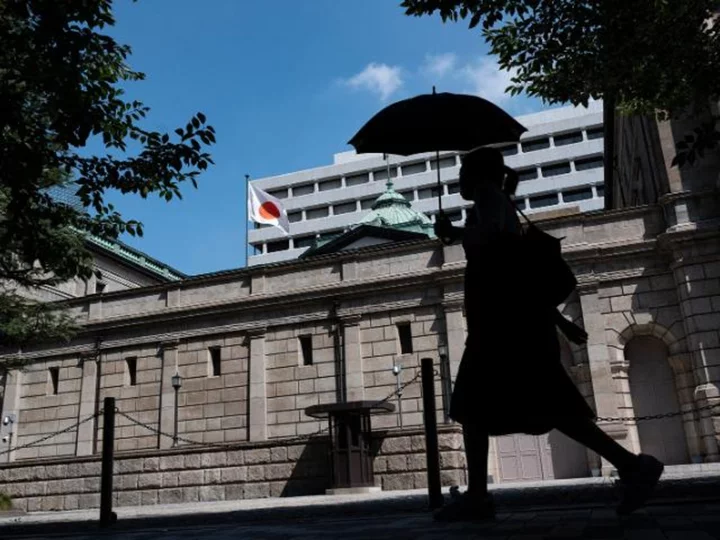Japan's central bank kept interest rates unchanged Friday despite rising inflation but hinted that it could gradually abandon years of ultra-cheap money, sending the yen soaring and stocks tumbling.
The Bank of Japan (BOJ) said it kept unchanged its short-term interest rate at minus 0.1% and maintained its target for the yield on 10-year government bond at around 0%.
But the central bank also said it would adopt a more flexible approach to controlling the yield on government bonds — which affects borrowing costs across the world's third biggest economy, diluting a key pillar of its longstanding ultra-loose monetary policy.
Some analysts interpreted the decision as a step by the BOJ toward eventually ending its policy of trying to cap 10-year bond yields, which was introduced in 2016 to tackle deflation and economic stagnation but has become increasingly difficult to maintain during a period of rising inflation and as other major global central banks hike rates.
"No introduction of the policy rate guidance suggests that the Bank [of Japan] left open the near-term policy rate hike optionality, in our view," UBS analysts noted.
The US Federal Reserve and the European Central Bank earlier this week jacked up rates to their highest levels in more than two decades, but investors believe both may be nearing the end of their tightening campaigns.
The Japanese yen surged by as much as 1% against the US dollar in response to the BOJ announcement. The Nikkei 225 slumped by as much as 2.6%, before recouping some losses.
"With extremely high uncertainties for economic activity and prices, the bank enhances the sustainability of monetary easing by conducting [yield curve control] with greater flexibility," the bank said in a statement.
The central bank also said it would offer to buy 10-year Japanese governments bonds at a yield of 1% through fixed-rate operations, above the previous rate of 0.5%.
"This may lead to further policy adjustments in the future, but the focus is on gradual changes," said Stephen Innes, managing partner for SPI Asset Management.
"It seems important that they do not want to strengthen the yen or change policy settings too quickly as there is a lot of economic uncertainty into 2024, when the US, EU or China are not expected to be powerful locomotives of growth."
The BOJ said it wanted to maintain ultra-low interest rates because Japan hadn't yet achieved its 2% inflation target and would "patiently" continue with monetary easing.
Japan's core CPI, which excludes volatile fresh food items, rose 3.3% in June, accelerating from 3.2% in the previous month. It has stayed above the central bank's inflation target for the fifteenth straight month.
On paper, the headline numbers suggest the BOJ's inflation target has already been met. However, Kazuo Ueda, governor of the bank, says the price increases have been mainly being driven by "cost push factors," such as high import costs, which could slow as the cost of imported commodities falls.
Officials are not convinced that deflation has been fully defeated. They have indicated that they want to see increases in wages, among other evidence, before considering ending their massive stimulus program.

